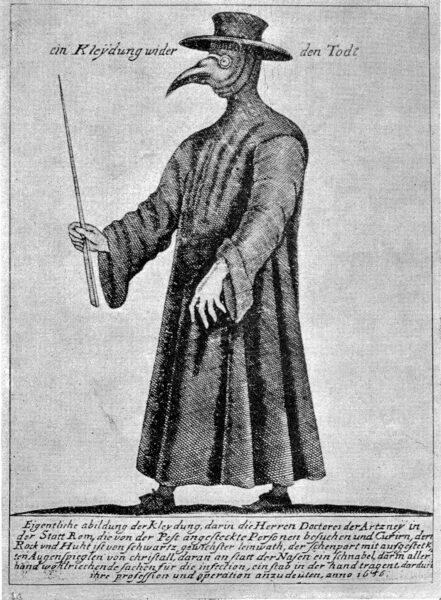Survival of the fittest: May the best human win, or not…
By poppyosman

Before COVID-19 spread around the world, one of the most well-known pandemics was the bubonic plague, otherwise known as The Black Death. It is one of the most devastating diseases in world history, killing around 30-50% of Europe’s population.
Our ancestors were the lucky ones that managed to survive it without modern antibiotics, which can now be used to treat those infected. However, recent evidence has come to light about how those advantageous genes may be causing us problems now.

The Black Death
The bubonic plague is a bacterial infection primarily spread by rats. It is caused by the bacteria Y.pestis which attacks cells, disabling the immune system.
East Smithfield, London, was an area of focus for archaeologists due to its use as an emergency Black Death mass burial site. From 1348, when the plague hit London, to 1350, it has been estimated that 2,400 Londoners were laid there to rest.
To learn more about our ancestors, scientists have recently extracted 500 DNA samples from these plague pits. Now, this information has been used to determine links between the genetic makeup of those who either died before the plague, died from it or survived it.
Infectious diseases have always been a topic of conversation in the scientific world, bringing up questions which often lead to a lot of opposing opinions. A major question has been whether research should focus on finding cures for infectious diseases or genetic and autoimmune conditions. However, scientists who have extracted these DNA samples have begun to look into links between the two.
How the plague impacted our genes
After extraction of the samples from the mass burial site, scientists began to sequence the DNA. In the cohort which survived the Black Death, there were strong results for a polymorphism (a variant of a specific DNA sequence) which coded for a gene known as ERAP2. This codes for an enzyme which is involved in the production of molecules called peptides. These specific peptides are used in the production of immune cells known as CD8+ T cells. It is thought that a more diverse array of these specific immune cells is important in the protection against infection. CD8+ T cells release molecules called cytokines which are able to generate a greater immune response by attracting other immune cells to the area of infection.
The study, recently published in Nature, suggests carriers of this variant were more they were likely to survive due to increased neutralisation of the bacteria causing bubonic plague. The attraction of these extra immune cells helped our ancestors overcome the bubonic plague, however, this might be what makes humans more susceptible to autoimmune diseases.
Autoimmune Disease
Autoimmune diseases occur when the body’s immune system mistakes its own cells for foreign cells. It begins to attack them and this can cause diseases such as Multiple Sclerosis, Type One diabetes and Crohn’s disease.
ERAP2, a gene found in those who survived the Black Death, was found to have a functional relevance to Crohn’s disease. Crohn’s is categorised as an inflammatory bowel disease which causes chronic inflammation in the gastrointestinal tract. It most commonly occurs between the ages of 15 and 35, with both men and women equally affected.
The exact causes of Crohn’s disease are not known, however, it is thought that the ERAP2 gene may be contributing to chronic inflammation and the thickening of the intestinal wall. These both ultimately lead to the symptoms of the disease.
Is our body sabotaging us?
Crohn’s disease is just one of many autoimmune diseases that could have links to the increased sensitivity of the immune system.
“A hyperactive immune system may have been great in the past but in the environment today it might not be as helpful,” states Hendrik Poinar, Professor of Anthropology at McMaster University in Canada.
It is important that further research is done in current disease areas, while also looking into past generations to understand possible links.
Mihai Netea, an infectious disease specialist at Radboud University Medical Centre in the Netherlands, suggests it is key for future medical knowledge to look back at how our ancestors survived through pandemics, stating that, “these studies on ancient DNA can actually help understand diseases even now.”







